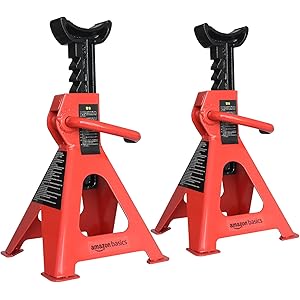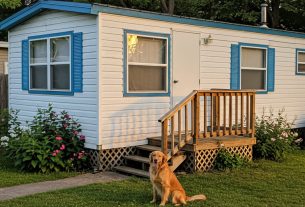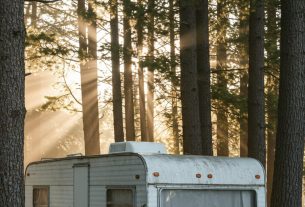When I first considered moving into a trailer home, I was overwhelmed by the stigma that often surrounds them. Many people view trailer homes, or mobile homes, as cheap, low-quality housing options. However, as I delved deeper into the subject, I discovered that trailer homes can be affordable, practical, and even stylish living options. In this article, I will explore the financial benefits, provide valuable insights into the market, and share personal experiences that may change the way you think about trailer homes.
The Financial Appeal of Trailer Homes
Before diving into the specifics, let’s talk numbers. The average cost of a new manufactured home is significantly lower than that of traditional homes. According to the U.S. Department of Housing and Urban Development, the average price of a manufactured home in 2021 was approximately $82,000, compared to the median home price of over $300,000 in the same year.
Why Are Trailer Homes More Affordable?
- Lower Construction Costs: Trailer homes are often built in factories, which reduces labor costs and construction time.
- Less Land Investment: Many trailer homes are placed in mobile home parks or on smaller lots, lowering the price of land.
- Energy Efficiency: Modern trailer homes are designed to be energy-efficient, reducing utility bills over time.
- Quick Depreciation: Like new cars, trailer homes can depreciate quickly, but they also provide affordable entry points into homeownership.
Living in a Trailer Home: The Experience
Transitioning to a trailer home can feel daunting, but I found the experience rewarding. The key is understanding that trailer homes can provide a sense of community and a simpler lifestyle.
Community Living
Many trailer parks foster a strong sense of community. Living among like-minded individuals creates opportunities for friendships and support. For instance, in my neighborhood, we often host BBQs and holiday celebrations, enhancing our sense of belonging.
Less Maintenance
- Smaller Spaces: Trailer homes are typically smaller than traditional homes, meaning less space to clean and maintain.
- Durable Materials: Many modern trailer homes use durable materials that require less upkeep.
- Landscaping: With less yard space, landscaping becomes manageable, allowing more time for enjoyment rather than maintenance.
Comparing Costs: Trailer Homes vs. Traditional Homes
It’s essential to compare the costs associated with trailer homes versus traditional homes. Here’s a detailed look at various aspects of homeownership:
Initial Purchase Price
- Trailer homes can be purchased for as little as $20,000 for used models, while new models typically range from $50,000 to $100,000.
- Traditional homes require a much larger investment, often exceeding $200,000 for a modest house.
Monthly Expenses
Monthly expenses can vary, but let’s break down the average costs associated with both living situations:
- Trailer Home:
- Loan Payments: $300 – $800
- Insurance: $50 – $100
- Utilities: $100 – $200
- Lot Rent (if applicable): $200 – $600
- Traditional Home:
- Loan Payments: $1,000 – $2,500
- Insurance: $100 – $200
- Utilities: $200 – $400
- Property Taxes: $200 – $600
Financing Your Trailer Home
Financing a trailer home might seem challenging, but various options exist. Understanding these can help you make informed decisions:
Types of Financing
- Chattel Loans: Designed specifically for mobile homes, these loans are secured by the home itself rather than the land.
- Personal Loans: For those who want to avoid traditional financing, personal loans can be a viable option.
- FHA Loans: The Federal Housing Administration offers loans for manufactured homes, making them accessible for many buyers.
Understanding Interest Rates
Interest rates on loans for trailer homes can vary widely, but they tend to be higher than those for traditional homes. It’s essential to shop around and compare rates from different lenders to find the best deal.
Debunking Myths About Trailer Homes
As I explored the world of trailer homes, I encountered numerous myths that misrepresent these living spaces. Let’s address a few of the most common misconceptions:
Myth #1: Trailer Homes Are Low-Quality
While older models may have had quality issues, modern trailer homes are built to high standards and often exceed traditional building codes. They can include luxury finishes, energy-efficient appliances, and stylish designs.
Myth #2: Trailer Homes Are Only for Low-Income Families
Many affluent individuals choose trailer homes for their affordability and simplicity. The tiny home movement, which shares similarities with trailer living, has gained popularity among millennials and downsizers alike.
Myth #3: Trailer Parks Are Unsafe
While some trailer parks may have issues, many are well-maintained and offer a strong sense of community. Researching parks and speaking with current residents can provide insight into their safety and quality.
Case Studies: Real-Life Experiences in Trailer Homes
To provide a well-rounded perspective, I researched several case studies of individuals and families who have chosen trailer homes. Here are a few notable examples:
The Green Family: Embracing Minimalism
The Greens decided to downsize from a large suburban home to a modern trailer home after their children moved out. They now enjoy a clutter-free lifestyle, reduced expenses, and the freedom to travel.
Sarah: A Young Professional’s Journey
At 28, Sarah purchased a trailer home after struggling to afford rent in the city. She now owns her space and enjoys the independence that comes with homeownership.
The Johnsons: A Family’s Adventure
The Johnson family decided to buy a trailer home to explore the country. They travel full-time, homeschooling their children and embracing a nomadic lifestyle while saving on rent.
Statistics: The Trailer Home Market Today
The trailer home market has seen a resurgence in recent years, driven by the desire for affordable housing. Here are some key statistics:
- The manufactured home market is projected to grow by 6% annually.
- Over 22 million Americans live in manufactured homes.
- 83% of manufactured home owners report being satisfied with their living situation.
Conclusion: Is a Trailer Home Right for You?
In conclusion, trailer homes provide a viable, affordable alternative to traditional housing. With lower costs, a sense of community, and modern amenities, they can be an excellent choice for many individuals and families. As I learned through my journey, embracing the trailer home lifestyle can lead to financial freedom and a more fulfilling life.
So, are trailer homes cheap? Yes, they can be. But beyond their affordability, they offer a unique lifestyle that many are beginning to appreciate. I invite you to explore this option further, join the conversation, and share your thoughts. Together, we can redefine what home means and discover the possibilities that lie within.
Frequently Asked Questions
What are the differences between a trailer home and a tiny home?
While both are affordable living options, trailer homes are typically larger and built to specific industry standards, whereas tiny homes are custom-built and often focus on minimalism.
Can I finance a trailer home with bad credit?
Yes, there are financing options available for individuals with bad credit, including personal loans and chattel loans designed for manufactured homes.
Are trailer homes a good investment?
Trailer homes can be a good investment, especially if located in desirable areas. They offer lower initial costs and potential for appreciation, depending on market conditions.
If you found this article helpful, please consider signing up for our newsletter for more insights and tips on affordable living. Share this article with friends and family on social media to help others discover the benefits of trailer homes!
Amazon Basics Steel Jack Auto Stands with 6,000 lb or 3 Ton (2.7 metric Ton) Capacity, 1 Pair, Black and Red
$29.99 (as of October 10, 2025 07:02 GMT -03:00 - More infoProduct prices and availability are accurate as of the date/time indicated and are subject to change. Any price and availability information displayed on [relevant Amazon Site(s), as applicable] at the time of purchase will apply to the purchase of this product.)
Sign up for our newsletter and stay up to date with exclusive news
that can transform your routine!





